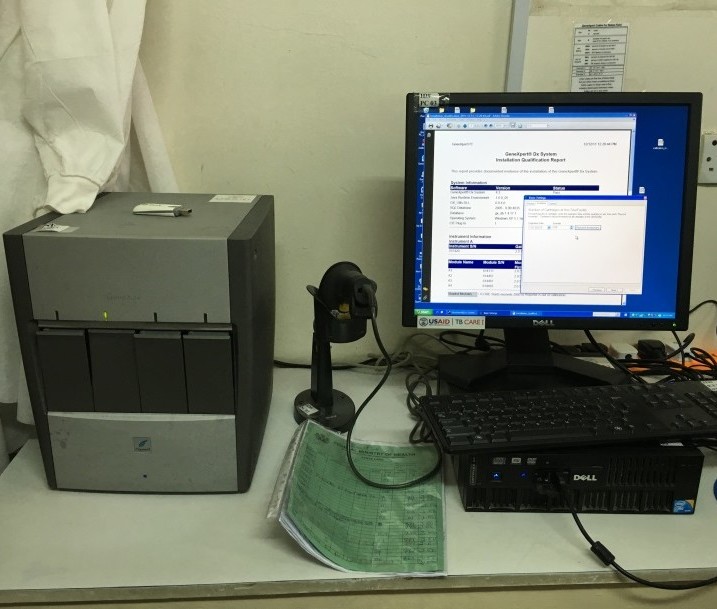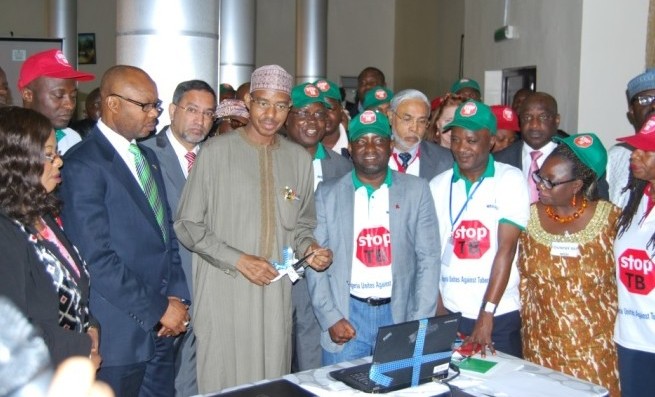Partnering with Nigeria to Adopt Technology for Rapid, Effective TB Response
In its 20th annual global report on tuberculosis (TB), the World Health Organization ranked Nigeria third among the 22 high-burden countries in the world. Falling behind India and China, Nigeria ranks highest in Africa in terms of TB burden. The recently released WHO report states there are about half a million more cases of TB than previously believed, with nearly 40 percent of cases undiagnosed. In fact, in 2014: “TB surpassed HIV as the leading cause of death from infectious disease, worldwide” (WHO).
TB testing and results reporting is a lengthy process in Nigeria—partly due to a reliance on paper records, overburdened labs, and slow data transit systems—making it difficult for the National Tuberculosis and Leprosy Control Programme (NTBLCP) to account for and enroll patients diagnosed with drug-resistant TB (DR-TB) in a timely manner. DR-TB occurs when strains of the tuberculosis bacteria develop resistance to treatment by first-line drugs. It is difficult and expensive to treat, requiring a treatment period of three to four times that of TB and several daily rounds of antibiotic, and is often fatal. Identifying it, enrolling patients in treatment programs, and testing their contacts in a timely manner is critical to epidemic control.
The country relies on the GeneXpert machine—an automated diagnostic test that can identify TB DNA and resistance—to diagnose DR-TB. Currently, over 170 GeneXperts are used in facilities throughout Nigeria, with 130 additional machines to be installed before the end of 2016. The machines, however, are expensive, and positioned in central locations, which are far from many health facilities. Data can take weeks or even months to arrive at central locations for compilation and reporting. Data quality—especially from paper-based data tools—is often lacking and follow-up is time consuming.
To address this health system constraint, USAID’s Health Finance and Governance (HFG) project is supporting the NTBLCP in implementing an innovative, mobile-based solution in 46 laboratories across the country. The GxAlert software, which was developed by Abt Associates Inc. and SystemOne, works by connecting the GeneXpert to the Internet, allowing results to be sent to an application and transferred into a central, secure database in real-time. This shortens the reporting period from days or weeks to seconds, resulting in faster referral of patients into appropriate care.
The software was piloted in eight GeneXpert labs and eventually scaled nationally to all 46 GeneXpert sites across the country at the time. Due to the program’s success in improving data system and patient management, the NTBLCP decided to scale up to approximately 250 more TB facilities across the country, an effort which is being supported by HFG.
Former Minister of Health Dr. Khaliru Al Hassan officially launched the nationwide rollout of the GxAlert software on World TB Day, 2015. The minister touted the system as an important step for Nigeria, saying: “With technology, health service provision and delivery [have] been made easier and timely.” The government’s ownership has been crucial for such a program to expand successfully.
The advent of the GxAlert application has had a tremendous impact on the TB response in Nigeria. By connecting all the rapid GeneXpert diagnostic machines to GxAlert, the NTBLCP and private health facilities are now able to:
- Report TB and HIV indicators in a real-time, automated process;
- Send targeted “alerts” by SMS or email to health system decision-makers;
- Deliver real-time disease surveillance data to the GxAlert database, linking to the electronic TB (eTB) Manager; and
- Prevent GeneXpert cartridge stock-outs and track usage for order accuracy.
HFG is working on the scale-up of GxAlert with the installation of Smart WiFi routers in all GeneXpert facilities in Nigeria. Recently, HFG Nigeria’s Acting Chief of Party Dr. Gafar Alawode and TB Senior Advisor Kehinde Agbaiyero accompanied representatives from the NTBLCP on a visit to the Zankli Hospital TB lab during the installation of these smart routers. During the visit, the group discussed the benefits of GxAlert and the smart routers, and implications for TB epidemic control. These routers will provide faster, more reliable, more secure Internet connections, helping to overcome Internet challenges that impede the full effectiveness of the GxAlert system.





